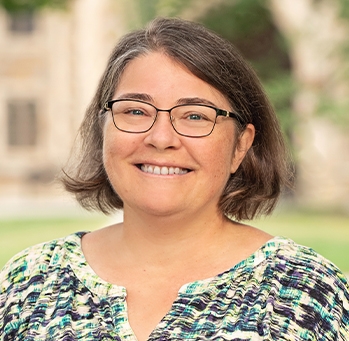The Federal Constitution guarantees parents the right to direct the care of their children. Yet, each year, thousands of Michigan parents are stripped of their constitutional right to care for their children when the state terminates their parental rights.
Because of the constitutional rights at stake and the permanence of the decision, the termination of a parent’s rights has been referred to as the “civil death penalty” by courts, legal scholars and advocates.
About the Child Welfare Appellate Clinic
Students in the Child Welfare Appellate Clinic represent parents in termination of parental rights appeals at the Michigan Court of Appeals.
Students handle all aspects of the case. They identify the legal errors and write the appellate briefs. They interview and counsel the clients. And they handle the oral arguments before a three judge panel of the Court of Appeals.
Not only do students in the clinic learn key lawyering skills such as persuasive storytelling, structuring legal arguments, interviewing, and client counseling, they also safeguard the fundamental rights of these parents.
Our students have had some remarkable successes in these cases. Typically, parents prevail in less than 7% of appeals; in the first four years of the clinic, our students have prevailed in almost 50%.
Information for Students
-
Who should apply?
All second- and third-year law students interested in gaining litigation experience focused on legal writing and research should consider applying for the Child Welfare Appellate Clinic. Prior experience in child welfare law is not required. In fact, most of our students have none.
Students looking to spend a semester focusing on key lawyering skills such as persuasive storytelling, structuring legal arguments, interviewing, and client counseling, while addressing an important need—protecting the rights of parents facing the permanent termination of their parental rights —should apply.
-
How do I apply?
Second-and third-year law students may register for the five-credit clinic using the Law School’s computerized registration system. There are no prerequisites for the course. Information about registering for the clinic can be found here.
-
Is the clinic graded?
The five credits students receive for taking the clinic are graded. Students are informed of the relevant grading criteria on the first day of class. Students should expect to spend a minimum of 15 hours a week—outside of class—on clinic work.
-
Student Testimonials
“In CWAC, we were asked to look at complex, extensive records and compile appellate briefs on behalf of our clients—all of whom were parents whose rights had been terminated. We were asked to engage in regular client contact, to identify the legal arguments most advantageous to our clients, and then to present those arguments in written briefs and appellate oral arguments to Michigan’s Court of Appeals. We engaged our skills as advocates to try to keep Michigan families together.”
- Betsy Fisher, ‘14
The experience of handling an appeal as part of the Child Welfare Appellate Clinic improved my legal writing skills immeasurably and greatly increased my confidence in the interpersonal side of lawyering. Through a hands-on environment that facilitated close collaboration with engaged, passionate faculty and students, CWAC taught me, more than any doctrinal class, what it means to be a lawyer. The experience of handling an appeal as part of the Child Welfare Appellate Clinic improved my legal writing skills immeasurably and greatly increased my confidence in the interpersonal side of lawyering. Through a hands-on environment that facilitated close collaboration with engaged, passionate faculty and students, CWAC taught me, more than any doctrinal class, what it means to be a lawyer.”
- Molly Dobberke, ‘15
“CWAC is an in-depth introduction to the choices that legal writers make at every level of granularity: from word choice and sentence structure to the effective use of precedent. You will learn how to craft each element of a quality appellate brief and identify concrete ways to improve your writing. Guided by seasoned—and successful—practitioners, you will transform a jumbled case file into a persuasive and technically flawless product. Finally, you will learn to adapt your written work into a compelling oral argument. This clinic will give you the skills and confidence to tackle your next step after law school, whatever that may be.”
- Tim Shoffner, ‘14




